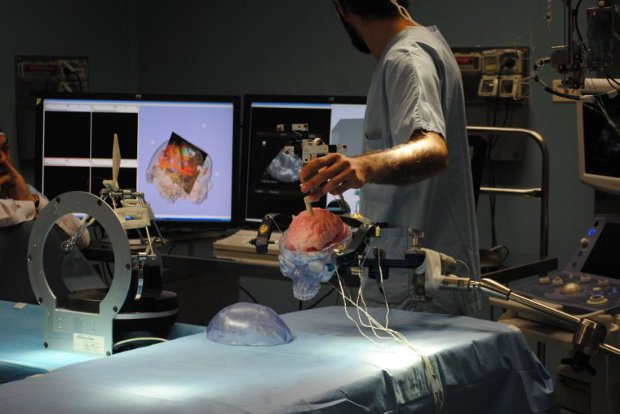Robotic neurosurgeon cuts out hand tremors

Researchers from the UK and elsewhere have successfully tested a neurosurgery robot on dummies, marking a key level of refinement in the system's development.
Kicking off European Robotics Week, the European Commission said on Monday that the Robocast project could lead to much more accurate neurosurgery. The EU-funded project involves researchers from the UK, Germany, Italy and Israel.

"If any activity requires precision, it's neurosurgery, so I am delighted this EU-funded research is helping surgeons and patients to be safer," digital agenda commissioner Neelie Kroes said in a statement. "If we can cut waiting lists and deliver better results for patients as Europe's population ages, I think EU-funded technology projects like this will pay us back many times over."
The robot is used for keyhole neurosurgery, where a small hole in the skull — called a 'burr hole' — lets a surgeon access the brain for surgery or the collection of tissue, blood or other fluids. Keyhole neurosurgery is generally used to deal with brain tumours or conditions such as epilepsy and Parkinson's disease.
However, humans often have slight hand tremors. According to the Commission, robots are able to reduce a surgeon's tremor ten-fold. Until now, though, no robot had been successfully tested for such a delicate task.
The Robocast robot offers 13 'degrees' or types of movement, whereas human neurosurgeons can only perform four. Additionally, the robot can provide haptic feedback so that those controlling it can judge the force with which the procedure is taking place.
Another EU-funded project called Active is looking into robotic neurosurgery for patients who remain awake during such procedures. This will involve up to three robots — two kitted out with sensors and one to "actively smooth head movements", the Commission said.